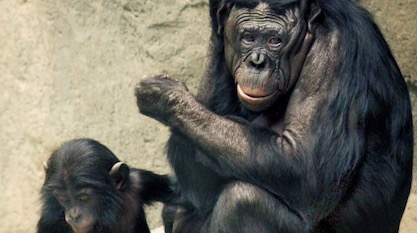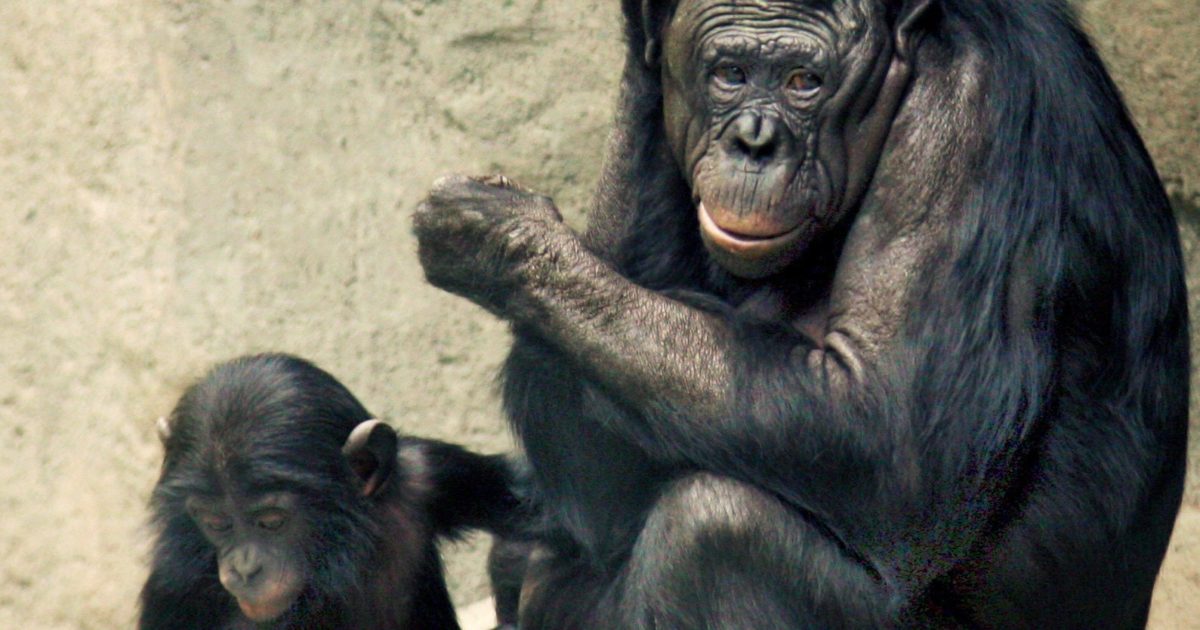 Human Origins
Human Origins
 Neuroscience & Mind
Neuroscience & Mind
Michael Egnor on Animal Generosity


Over at Mind Matters, neuroscientist Michael Egnor considers research on bonobos and the evolution of generosity. The work, “Bonobos voluntarily hand food to others but not toys or tools,” was published in Proceedings of the Royal Society B.
Carl Zimmer at the New York Times reported on it, and there is unsurprisingly the usual dose of story-telling. Zimmer:
This generosity may have been crucial to the survival of our early ancestors who lived in small bands of hunter-gatherers.
“When our own attempts to find food are unsuccessful, we rely on others to share food with us — otherwise we starve,” said Jan Engelmann, a researcher at Göttingen University.
To understand the origin of this impulse — known as prosociality — a number of researchers have turned to our closest living relatives. For example, a new study involving bonobo apes suggests that the roots of human generosity run deep, but only came into full flower over the course of the evolution of our species.
Just-So Stories
Egnor as always cuts through baloney with ease.
These just-so stories about human origins add little to our understanding of human altruism. “… We rely on others to share food with us — otherwise we starve” is hardly cutting-edge research.
…
The fundamental error committed by these researchers, aside from banality, is the equation of human will with animal passions. Will and passion are qualitatively, not just quantitively, different.
Both humans and animals have passions. Passions have a basis in material processes — brain pathways, neurotransmitters, and the like. Passions can be categorized as concupiscible and irascible. Concupiscible passions include love and hate, desire and aversion, and joy and sadness. Irascible passions include hope and despair, fear and daring, and anger. Both animals and humans have passions, which are based in material processes in the brain. It is in this sense that animal studies may cast some light on human passions.
But, in addition to material passions, humans have will. Will differs utterly from passion and animals lack it. That is because will follows on intellect, which is the human ability to think abstractly.
Bottom line:
If we are to genuinely understand machines, animals, and ourselves, we need to clearly understand that it is the immateriality of human intellect and will — our capacity to think and act abstractly — that makes us radically (i.e., ontologically) different from any animal or machine.
The failure to understand the gulf that separates humans from animals, and humans from machines, is a source of confusion to rival almost any other in our culture. Read the rest at Mind Matters.
Photo: Bonobo mother and daughter in the San Diego Zoo, via Wikimedia Commons.
